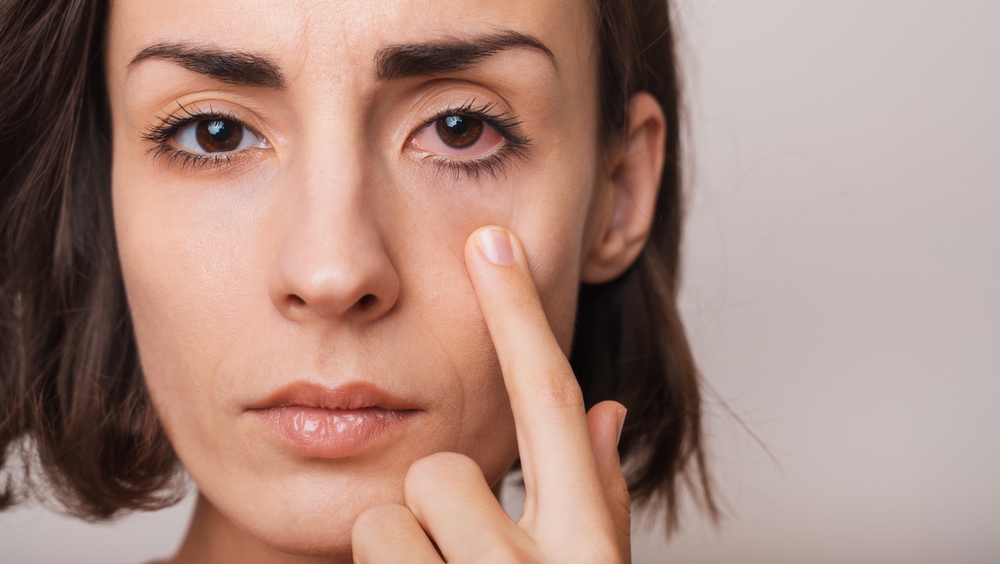
Dry eyes are uncomfortable and can cause you to experience a stinging and gritty sensation and eye redness. The condition occurs when the tears evaporate quickly or the tear glands cannot produce adequate tears. It can either be temporary or chronic.
Severe dry eye can lead to complications, such as infections and double vision, if untreated. Read on to learn some causes of chronic dry eye and how to treat them.
Medication
Tears comprise mucus, water, and oil. However, certain medications can cause chronic dry eye disease by reducing mucus production. They include diuretics, antidepressants, antihistamines, and beta-blockers that treat hypertension.
Talk to your medical care professional if you experience eye dryness after taking some medication. They can recommend a lower dose or an alternative drug to reduce eye dryness. You may also need to take it with artificial tears to lubricate your eyes.
Aging
Everyone can get dry eyes. However, you become more at risk of the condition the older you grow. Tear production reduces as one ages. Thus, most people above the age of 50 suffer from dry eyes.
Dry eye caused by age is not preventable. However, coat your eyes with extra lubrication for relief by using artificial tears regularly.
Menopause
Hormones play a significant role in stimulating tear production. For example, hormonal imbalance reduces the production of tears. Some women experience dry eyes while on birth control pills or during pregnancy or menopause.
Your dry eyes may not improve through hormone replacement therapy. However, your eye doctor can recommend lubricating eye drops to reduce irritation and dryness.
Laser Surgery
Some individuals who undergo laser vision correction begin experiencing dry eye. The surgery cuts some nerves in the cornea, making the eyes produce lesser tears. Your eye doctor will recommend keeping your eyes moist by using lubricating eye drops until your eyes heal from the surgery.
Autoimmune Diseases
Autoimmune conditions such as lupus and arthritis can cause insufficient tear production. Your dry eye symptoms can improve when the underlying condition is diagnosed and treated.
Sjogren’s syndrome can lead to chronic dry eye. It is an autoimmune disorder that causes your white blood cells to attack your tear glands and salivary glands. As a result, your tear production reduces.
Sjogren’s syndrome treatment involves lubricating eye drops and over-the-counter medication. Your medical care professional can also prescribe steroid eye drops. Surgery may be necessary to insert silicone plugs in your tear ducts if eye drops do not relieve your dry eyes. Doing so will help preserve your tears.
Autoimmune condition treatment involves a corticosteroid or immunosuppressant drug. Diet, healthy lifestyle habits, medication, and managing blood sugar helps with diabetes.
Vitamin A Deficiency
Vitamin A deficiency can cause dry and unhealthy eyes. Your doctor can diagnose vitamin A insufficiency by ordering a blood test. Eat foods rich in vitamin A like peppers, spinach, eggs, fish, and carrots.
Blepharitis
The clogging and inflammation of the small oil glands on the inner eyelid cause blepharitis. Your eyelashes may have oily flakes when you have dry eyes along with the condition. Blepharitis has no cure. However, you can use warm compresses over closed eyes for a few minutes to reduce the inflammation. After doing so, clean your eyelids using baby shampoo.
Reduce redness and dry eyes using artificial tears until the inflammation reduces. Consult your eye doctor about antibiotic eye drops if the condition does not improve.
For more about Chronic dry eyes, visit East Ventura Optometry at our Ventura, California office. Call (805) 647-4950 to book an appointment today.







